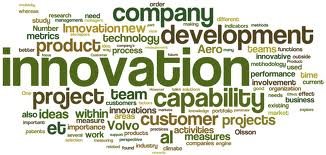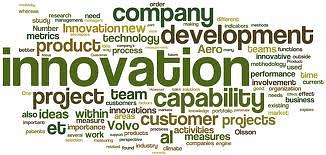Technology: Using BIG DATA to boost your business
Data analysis is not a miracle, but it can give a good enhancement to the company's strategy --
 The name scares a lot of people and most of the executives still do not know exactly what to do with such "big data" in the technological landscape that emerges as the solution of all problems of strategy and relationship of a company - or at least most them.
The name scares a lot of people and most of the executives still do not know exactly what to do with such "big data" in the technological landscape that emerges as the solution of all problems of strategy and relationship of a company - or at least most them.
BIG DATA - The term became famous after leaking information stating that the USA was spying all data circulating on the internet as well as they would record several hours of telephonic conversations. Even stating that only foreigners were being monitored. The story caused unease in the international community and indignation of the American people.
Even in the United States the concept of "big data" has been fully incorporated. "The market is in a tremendous confusion about the meaning and limitations of Big Data," said the executive, exit, no longer agrees with the name created for this dataset little or nothing structured. "The main issue is not the volume of data, but a variety of them and the speed with which they need to be analyzed,"
Big Data does not produce miracles
Sounds cliché, but it's not. A heap of information does not mean absolutely nothing if there is a team of qualified eye on business strategy. "You must have technology and mathematical models - which are public domain. That is, the biggest difference is in the analysis of these data, "he says. "There is no substitute for knowledge workers to make decisions based on analytical concepts and not intuitive."
In the coming years the United States will need about 170 000 people prepared to work with this type of analysis. "There are professionals available here for all this," he says, who lives in Seattle. With a data processing centre under construction, until the U.S. government is already worried about the supply of this demand. "Until the easing of immigration laws are being discussed,"
Analysis of data meets business strategies (not the technology)
If the project management of large data is created and stay within the Information Technology department, possibly it will be under utilized. The path should be the reverse. "The company has from the problem it seeks to solve, and then yes seek to analyze the data," he says. "Monitoring and managing data is an initiative should come from the business and not the technology."
The question is not only function, but strategy. IT teams, as a rule, are not in direct contact with the front service companies and, therefore, far end of the insights that could be solved from efficient management of information. "To take care of such data, not enough to know technology. You need to understand a lot of cases, the specific areas of the business, statistical modeling and even communication. "
Big data is defined by the culture of the company (not the budget)
No way. Even when the subject is mostly technological culture is who reigns over the operations of a company. Would realize that there are companies that bring analysis and cross-reference information in their DNA. Are "data driven corporations", ie, data-driven enterprises. Even a simple spreadsheet to collect and confront data already brings relevant results for a company.
However, they are not the majority. "Most companies still in its infancy in this direction," he says. Information that until recently were of interest only to companies like Google and Facebook have become part of everyday healthcare companies, financial markets and even in education.
So forget the idea that analyzing big data is exclusive of big fish. A medium or small with access to a cloud computing platform can have a lot of information without the need for major investments and not hiring a CDO. "Just the manager properly apply the concepts to better understand your customer and hit the best strategy."
Data are the raw material for analysis
Never lose sight of the essence of the term "big data". It is a term "too abstract." For clarity, "data is the raw material in a process of analysis", such as a productive process, the data is raw feedstock from a production process, resulting in data as a final product.
As in the industrial process, the validity, quality and reliability of raw materials are essential for a product - or, in this case information - quality. For tangent sensitive issues such as privacy of users, it is essential to ask whether there is some kind of threat to access such data. "Keep the data manager always aligned with the compliance and legal department."
Comments
There are 0 comments on this post













